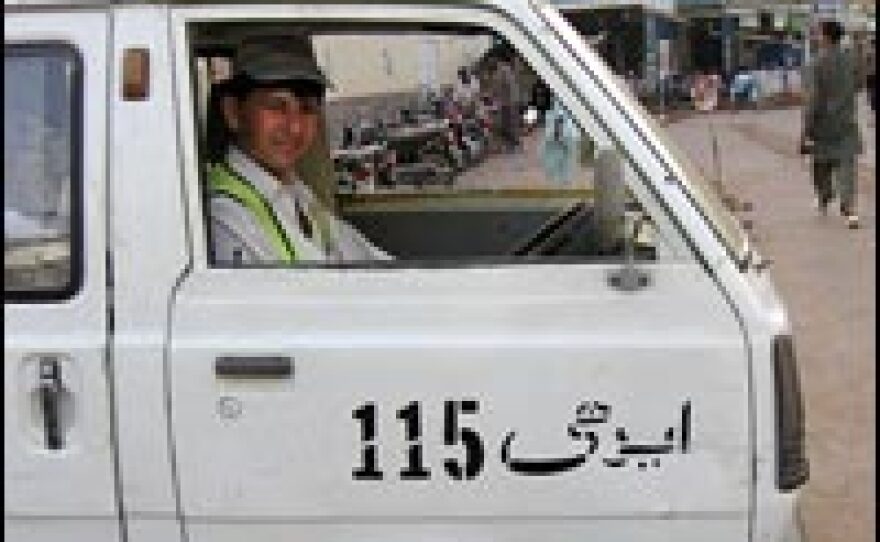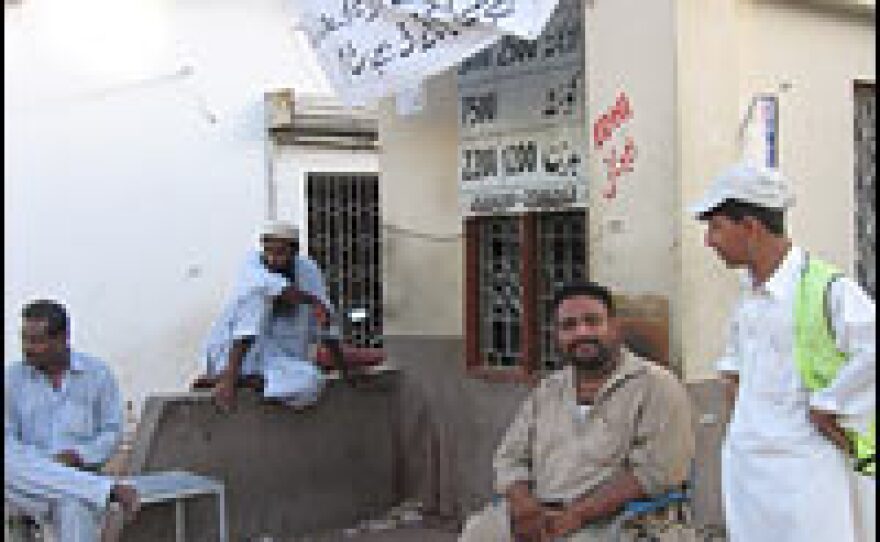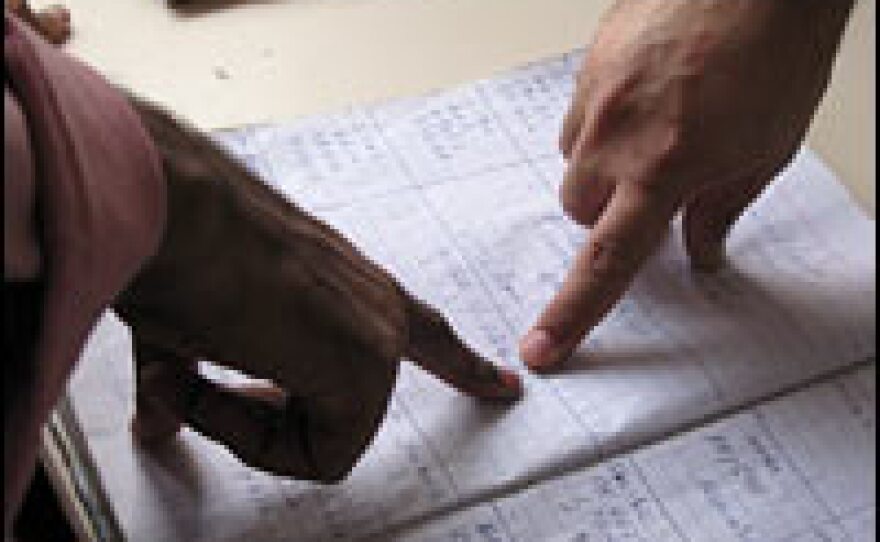



"Land has replaced gold."
That's how the architect and urban planner Arif Hassan sees it. He is talking about his home, the city of Karachi in Pakistan. "Everything that happened for gold now happens for land," he says.
The city's political debates constantly return to questions about land: Who controls it, who is allowed to live on it, and even who might be killed for it.
There is no more valuable land in Karachi, perhaps, than the property along the coast. Travel to the seaport city on the Arabian Sea and you will see giant cranes for the luxury waterfront towers that are under construction.
What is happening in Karachi is happening across the globe. According to the United Nations, half the world's population now lives in urban areas. The urban share of the population has grown for decades and grows a little more every day.
No one knows exactly how many people live in Karachi. By last year, the United Nations was estimating it at 12 million people, and that's the low end. Experts in Karachi contend the number is closer to 15 or 18 million. Whatever the real number, all of these people need somewhere to build a life.
Karachi is Pakistan's New York — massive and vibrant, the commercial engine of the country. One of its residents is the writer Fatima Bhutto. She is the niece of the late Benazir Bhutto, the former prime minister of Pakistan who was assassinated last December.
"We're a port city. Your writers, your journalists, your media strongholds are here," she says. "Unfortunately, this means, in some ways, that we're the seat of what takes place in Pakistan. Good or bad."
A Sprawling City
The architect Arif Hassan remembers the good and the bad from an earlier time. He came to Karachi when he was 4, just as British rule in India was ending and Pakistan was created as a haven for India's Muslims. Hassan vividly recalls a city of green colonial parks and old bazaars.
Those early days in the 1940s shaped Karachi's future. After the newcomers from India launched protests, Hassan says, the government moved them out of town. They had to relocate to suburbs, miles away from the center of power.
"That was the beginning of Karachi's transport problem," says Hassan. "From a high-density, compact city, Karachi was transformed into a low-density sprawl. From a multi-class, multi-ethnic city, it was transformed into class and ethnicity divisions."
The Ambulance Driver
The city grows, both as those new high rises are built along the water and as new people come to live in Karachi. One of those people is a man named Mohammed Nader. He's 31 and came to Karachi for a short visit from a tiny town in northwest Pakistan.
The reason he has stayed? "Love and marriage," he says. He had flown to the city to attend an engagement party of a friend. At the party, he fell in love with a woman he met there. They married, and now he is one of the millions of rural Pakistanis who moved to the city.
Karachi has never provided many services to those residents. There are not enough good schools or health care. Early this year, a blackout struck the city when authorities failed to pay the electric bill. But Nader found a job with a charity that answers the call for help.
The charity is a family operation called the Edhi Ambulance Service, and it runs the equivalent of a 911 line, since the government does not.
Edhi hired Mohammed Nader to drive an ambulance, but an ambulance in Karachi is nothing like an American ambulance, crammed with paramedics and the latest equipment. Nader basically got a license to drive a white mini-bus with no paramedic and with little more on board other than a metal gurney. He got three days of training, he says, where he learned how to lift patients without harming them.
He also learned to wait for the police before moving a murder victim off the street. That is an important skill in Karachi, which has a long history of political violence. Just a year ago, Nader almost became one of those victims.
Political and Ethnic Tensions
Nader's supervisor, Faisal Edhi, remembers that day in May of 2007. "When we woke up in the morning, people were aware that it was going to be a very bloody day," he says. "The opposition and ruling party were both having processions on that day." Edhi is the son of the founder of the ambulance service and he expected a bloody day because Karachi's political parties were planning dueling demonstrations.
Those parties tend to divide the city along ethnic lines. Which party you support may depend on where you were born, and which of Pakistan's many languages you speak. Gun battles began on that day in 2007 and word came in of gunshot victims on a bus. So Faisal Edhi decided to climb into Mohammed Nader's ambulance. "Nader was accompanying me, and we were stopped, surrounded by about 30-40 people, gunmen, belonging to ruling party," he says.
Those ruling-party gunmen focused on Nader's face. His complexion marked him as a man from northern Pakistan.
Ehdi describes what happened next: "He was sitting in the back of the ambulance," he says. "They grabbed, they took him out of the ambulance for shooting purposes, because of his appearance. And I yelled at them do not shoot, he's our man."
As he argued for his driver's life, Edhi knew that one ambulance driver had already been killed that day. But after pointing a gun at Nader's head and instructing him to say his prayers, the gunmen let him go.
For doing this job, the ambulance driver gets paid the equivalent of about $82 per month.
At the end of that day's work, last year, Nader went home to his wife, the woman whose chance meeting inspired him to seek a better life in Karachi.
Copyright 2022 NPR. To see more, visit https://www.npr.org. 9(MDAzMjM2NDYzMDEyMzc1Njk5NjAxNzY3OQ001))








